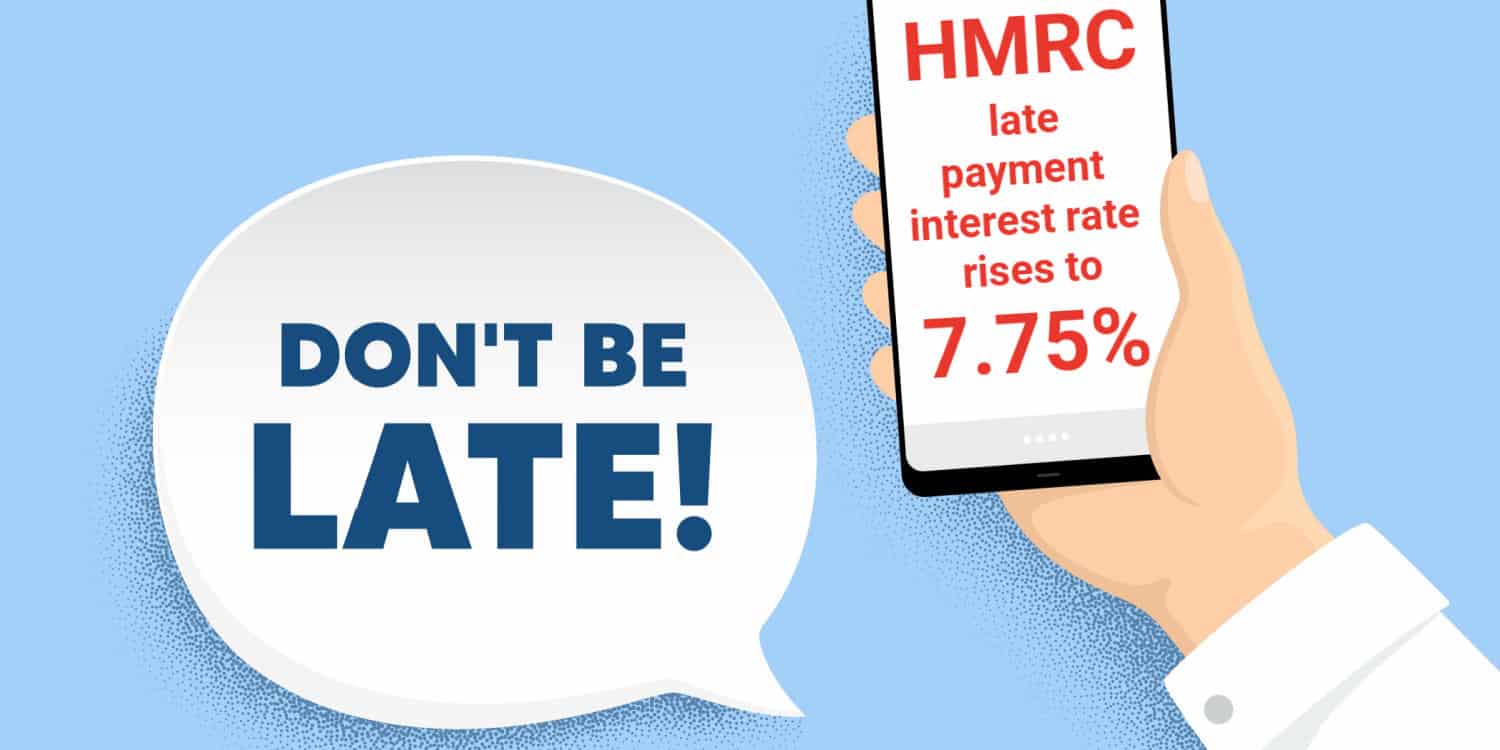Table of Contents
Following the Bank of England’s recent interest rate rise to 5.25% on 3 August, HMRC late payment interest has increased from 7.5% to 7.75%. This marks the 6th increase of the year. Repayment interest on early payments of tax has also risen, from 4% to 4.25%.
Changes to HMRC interest rates
In a bid to tackle the UK’s high inflation, the Bank of England (BoE) raised its interest rate by 0.25 percentage points to 5.25% on 3 August. This rate is known as the Bank Rate or, more commonly, the base rate.
Changes to the Bank Rate influence the interest rates that lenders and other financial firms charge on different types of finance, such as mortgages and loans, as well as the rates they offer on savings.
HMRC interest rates, which are set in legislation, are also linked to the Bank of England base rate. There are two HMRC rates:
- late payment interest – set at the base rate plus 2.5%
- repayment interest – set at the base rate minus 1%, with a ‘minimum floor’ (lower limit) of 0.5%
Late payment interest is designed to encourage prompt payment of tax. Repayment interest, on the other hand, compensates taxpayers for the loss of the use of their money if they pay too much or pay their tax bill early.
As a result of the BoE rate rise, HMRC’s late payment interest rate has increased from 7.5% to 7.75%, and the repayment interest rate from 4% to 4.25%. These new rates come into effect on:
- 14 August – for quarterly instalment payments
- 22 August – for non-quarterly instalment payments
This latest increase represents the highest HMRC rate since August 2007, when late payment interest was 8.5%.
Which taxes are affected by the interest rate increase?
HMRC late payment and repayment interest rates apply to most of the main taxes and duties, including:
- Income Tax
- National Insurance contributions (NIC)
- Capital Gains Tax
- VAT
- Stamp Duty Land Tax (SDLT)
- Stamp Duty and Stamp Duty Reserve Tax
- Corporation Tax
- Inheritance Tax
If you pay tax through Self Assessment – for example, as a sole trader, an LLP member, or a company shareholder – you will be charged late payment interest on any Income Tax, NIC, or dividend tax that remains outstanding after the payment deadline. This is in addition to a late payment penalty of 5% of the total amount of tax owed.
The deadline for paying tax through Self Assessment is 31 January after the end of the tax year. If you’re self-employed, you may also have to make two ‘payments on account’ (advance payments) toward your tax bill – the first on 31 January, and the second on 31 July.
You can use HMRC’s online tool to estimate how much you will need to pay in penalties and late payment interest if you miss a Self Assessment deadline.
If you run your business as a limited company, the same late payment interest will also apply to any outstanding Corporation Tax or VAT liability that your business owes after the payment deadlines.
The due date for paying Corporation Tax is nine months and one day after the end of your company’s accounting period. However, larger companies that pay Corporation Tax in four quarterly instalments have different deadlines, based on the length of their accounting periods.
The deadline for paying VAT is usually the same date on which your VAT Return is due – one calendar month and 7 days after the end of your VAT accounting period. However, you will have different deadlines if you use the Annual Accounting Scheme or payments on account.
You may also be charged late payment penalties (on top of interest), depending on how late you pay your VAT bill.
Making sure you pay tax on time
To minimise the risk of being charged HMRC late payment interest and penalties, it’s important to keep on top of your Self Assessment, Corporation Tax, and VAT requirements. You may find these obligations easier to manage with the help of an accountant.
HMRC will send you reminder letters and/or emails ahead of any payment deadlines, but you should not rely on these. It is your responsibility to be aware of all upcoming filing and payment deadlines.
It may be worthwhile setting up a Budget Payment Plan with HMRC, which would enable you to make regular weekly or monthly advance payments towards your tax bill. And remember, you will receive repayment interest from HMRC on these early payments.
If you are having difficulty paying a tax bill by the due date, or your tax is already overdue, you should contact HMRC as soon as possible. You may be able to set up a payment plan, allowing you to pay off your bill in manageable instalments over a longer period of time. This is known as a ‘Time to Pay’ arrangement.
Thanks for reading
Please comment below if you have any questions about this post, or get in touch with our company formation team if you need help with any aspect of running a limited company.











